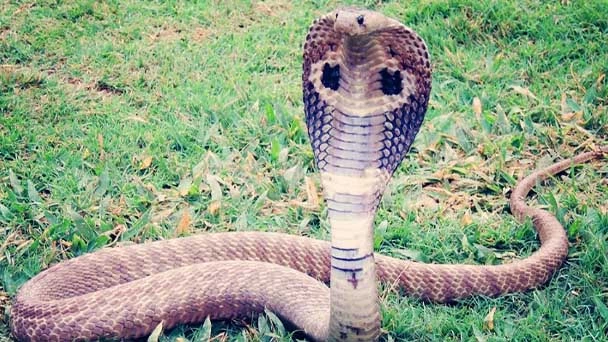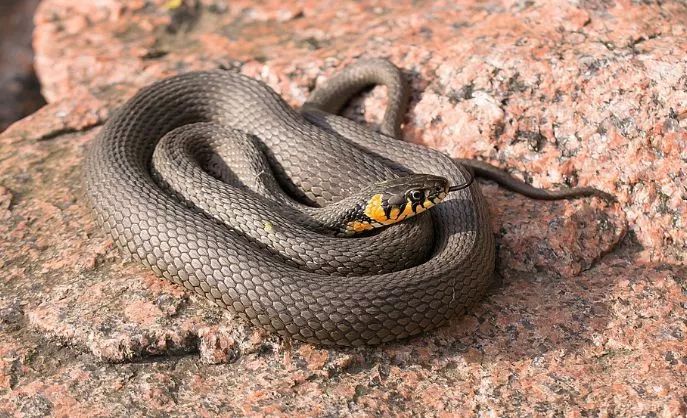How to Keep Snakes Away From Your Yard & Garden?
Written by Ivy
Dec 15 2022

North and Central America are home to garden snakes. They are medium-sized snakes that are also referred to as garter snakes. These non-venomous reptiles are typically found in gardens or close to water.
If you reside in one of the aforementioned areas, you probably want to know how to prevent garden snakes from entering your yard or garden. On a lazy summer day, nobody likes to hear or see a snake nearby. We're here to help, whether you're scared of snakes or just want to stay clear of them.
Key Points for Garden Snakes
- Garden snakes are a family of widespread, non-venomous snakes also known as garter snakes.
- Garden snakes live in a variety of habitats all over North America and parts of Mexico.
- There are a number of ways to keep garden snakes from hanging around, even though they can be beneficial to yards and gardens.
How to Keep Garden Snakes Out of Your Yard & Garden?
Snake-proof Fencing
If you've noticed snakes sneaking into your garden or yard, installing snake-proof fencing might be one of the first things you want to think about doing. Typically constructed of vinyl or hardware cloth, snake-proof fencing has a mesh that is too narrow for snakes to pass through. It must be set up so that snakes can't scale the fence. You can always consult a professional to assist you in installing the fence properly if you're unsure how to proceed.
Use Snake Repellent
Snakes possess keen senses of smell. Use snake repellents to keep them out of your garden or yard.
It is widely believed that many commercial snake repellents work. The use of natural products allows you to make your own snake repellent, though. Ammonia is among the best products. Snakes won't even dare to approach it because they can't stand the smell. Old clothes should be ammonia-soaked before being placed in open plastic bags and left in areas where you've previously seen snakes entering homes. Pour some white vinegar around your pool to deter snakes, if you have one.
Keep Grass under Control and Add Plants Snakes Don't Like
The best you can do is assess how "inviting" your yard or garden is to snakes. To protect snakes from hawks and other predators, keep the grass short. You'll also be able to see them more clearly. Avoid overwatering the grass because it will entice worms, frogs, and snakes. Snakes can be repelled naturally by plants like marigolds, wormwood, or lemongrass. It will also be beneficial to plant some near the house.
Remove Any Potential Hiding Spots for Snakes
Look for crevices, holes, or hiding places on your home's exterior and in the yard or garden. Remove any woodpiles you may have around your home because snakes can easily hide there. In addition to being dangerous, bird feeders can also attract snakes that are looking for prey, which attracts rodents.
Hair is Also An Amazing Snake Repellent
Declaring clearly that people live there is another way to keep garden snakes out of your yard or garden. What more effective way to accomplish this than by using their keen sense of smell? Keep the hairs that are left on the hairbrush after you or someone else in the house brushes their hair, and scatter them around the property. Snakes will smell the hair and avoid the yard, despite the odd sounding statement.
What Should You Do If You Spot a Garden Snake in Your Yard Or Garden?
Garden snakes are often hostile. If you see one, do not try to catch it or touch it. A minimum of three feet should separate you from the snake for safety's sake. They will feel threatened if not. We advise you to keep a bottle of snake repellent nearby at all times. The snake can be sprayed until it disappears.
Garden snakes do not pose a threat to people. In order to distinguish them from other venomous snakes like rattlesnakes, it's crucial to learn how to identify them. Although a garden snake bite can swell and hurt, it is not as dangerous as a rattlesnake bite. Any contact with a snake should always be avoided. Call 911 for emergency help if you are scared, don't know what kind of snake it is, don't know what kind of snake you've ever encountered, or the repellent isn't working.
These snakes release an offensive-tasting secretion that causes your pet to drop them as soon as they get a hold of them if they should happen to get in their hands. The unpleasantness should be eliminated by thoroughly washing your pet's mouth.

Garden Snake Identification
To avoid being alarmed by a garden snake, it is crucial to be familiar with its appearance. How does a garden snake appear? Typically, these tiny snakes don't grow taller than two to three feet (0.5-1 m).) long with lengthwise markings in yellow, red, or white.
Garden snakes come in a variety of varieties that are unique to their habitats. Since these snakes are harmless, there is no need to kill them. Garden snakes don't lay their eggs for their young to hatch, unlike some other snake species.
Also Read How to Get Rid of the Following Species:
- How to Get Rid of Scorpions from Your Garden Safely
- How Much Does Bee Removal Cost - Is It Expensive?
- How to Get Rid of Rabbits in the Garden With Simple Ways
- How to Get Rid of Grass Flies - Pest Control & Treatment
- How To Get Rid Of Carpenter Bees - What Is The Best Deterrent
- How to Get Rid of Mushrooms in Your Garden - 6 Ways to Try
- How to Get Rid of Beetles in Your Garden & Yard
What Does a Garden Snake Look Like?
Depending on the region of the country you live in, garden snakes, also known as garter snakes, come in a variety of colors and patterns. Normally brown or black, but they can also be greenish-colored, are these snakes. Near the stripes, most have a checkerboard design. These snakes also come in different colors.
- In Florida, garter snakes are frequently blue.
- The checkered garter snakes, which are mostly active at night and can be found in Texas, are nocturnal creatures. (With the exception of when it's too hot, garden snakes typically move around during the day. When they do, they start to move around at night.)
- Red garter snakes come in ten or more different varieties and are found in California and some states in the northwest.
If you can, live in harmony with garden snakes. They do not endanger people. They might even be useful in the garden. However, be ready to spot them in your garden so you don't mistake them for venomous species. If you need advice on a specific snake that lives in your area, get in touch with the extension office in your area.
Habitat modification is the most effective method to keep snakes out if you can't stand the thought of them in your garden.
Are Garden Snakes Dangerous?
Let's first examine whether garden snakes are venomous or dangerous before moving on to some advice on how to keep them out of your yard and garden.
Garden snakes were previously thought to be a non-venomous species. Then it was discovered that their bites contained a mild neurotoxic venom that in some people can trigger an anaphylactic reaction. Given that they have much less venom in their bites than other venomous snakes, they are still not regarded as a threat to humans.
Even so, people should still steer clear of garden snakes, especially if they have children or pets. Garden snakes can bite if they feel threatened and are poisonous if eaten. A particularly aggressive species of reptile is the garden snake. Additionally, they can transmit salmonella and release a musk that aggravates dogs.
Summary
Even though their bite can be uncomfortable and they don't taste very good, garden snakes are ultimately harmless. They keep other creepy crawlies out of your yard and garden while staying out of the way of you and your pets, which is beneficial for both.
FAQs
Are Garter Snakes Friendly to Humans
Garter snakes are timid. They will generally avoid humans and animal contact and prefer to be left alone. Most likely, you are unaware that you have garter snakes in your garden or yard. Garter snakes have a high level of activity.
Are Garter Snakes Poisonous
They aren't thought to be poisonous to people, no.
How to Attract Snakes to Your Garden
- Keep the bushes and grass untrimmed.
- Bowls of stale cat and dog food should be left outside.
- Old tires, empty cans, satellite dishes, and other items of trash that collect water should be thrown into the yard.
Latest Updated
- Benefits of Bugleweed - 7 Science-backed Health Benefits
- Bugleweed Dangers & Side Effects - Is It Poisonous?
- How to Plant Evergreen Trees - What You Should Know
- When to Plant Evergreens - Grow Guide for Evergreen Trees
- 12 Wonderful Evergreen Shrubs for Your Garden
- 12 Popular Evergreen Plants with Pictures for Beginners
- When And How To Prune A Lilac Bush Like a Pro
- How to Grow & Care for Lilac Vine (Hardenbergia Violacea)
- Japanese Lilac Tree (Syringa Reticulata) Care & Propagation Guide
- Shumard Oak Pros and Cons - What to Know
Popular Articles
- Winter maintenance of Antirrhinum Majus
- How to Grow Terminalia Mantaly Tree
- How to Grow and Care for Crossostephium Chinense
- How to grow Antirrhinum Majus in spring
- Peristeria Elata (Dove Orchid) Profile: Info & Care Guide
- Underwatered Snake Plant (Sansevieria Trifasciata) - Signs And How To Fix
- How to Care for Brazilian Jasmine Plant (Mandevilla Sanderi)
- How to Grow & Care for Graptopetalum Purple Delight in Summer
- Rosa Chinensis (China Rose): Plant Growing & Care Tips
- How to Care for Baby Sun Rose (Aptenia Cordifolia)